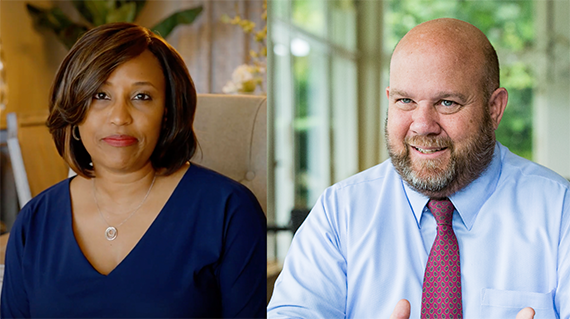Bud Darr, Executive Vice President, Maritime Policy and Government Affairs at MSC Group and Melissa Williams, Vice President for Marine, Sectors and Decarbonisation at Shell explore how the industry can work together to achieve net-zero emissions shipping.
According to Ms. Williams, decarbonisation is a fundamentally complex and long-term challenge for shipping, and shipping has to “navigate some profound changes to overcome it.”
Agreeing with Ms. Williams, Mr. Darr added that despite what has happened recently shipping must think carefully about getting its efforts right to decarbonise, and to progress these efforts.
As an example of our efforts to decarbonise, MSC has been pioneering the use of responsibly sourced biofuel blends, and we were pleased to have been able to work with Shell on that. It’s a great start, and part of a much broader range of initiatives, but we agree that no single technology or solution holds all the answers
stated Mr. Darr, noting that the company is looking at all possible options, such as hydrogen derived fuels. MSC has also been exploring for several years the potential benefits of progressing from fossil-based LNG to bio-LNG or synthetic variants.
The bottom line is: one size doesn’t fit all. There are up to 100,000 ships out there with various shapes, deployments, and sizes. They all need to decarbonise over time
As for Ms. Williams, she believes that shipping needs a range of new solutions to pave the way to a low-carbon future for shipping.
As an industry we need to co-create these solutions. Shell is focused on partnering with others to drive change. We want to lower the barriers to success on decarbonisation across the industry
Another important factor for decarbonization according to Mr. Darr is the need to keep pushing forward regarding energy efficiency efforts.
This is critical, not only for the gains in emissions it can produce today with conventional fuels, but also for its value in improving both the cost and volume profiles of future fuels to make them a shipboard reality sooner
Finally, Mr. Darr concluded that the work MSC has done on biofuels allowed the company to take firm steps and make real progress.




























































